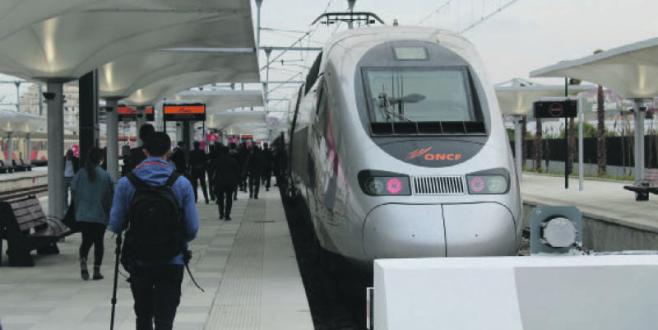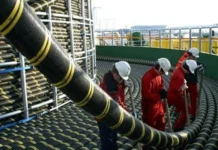After closing 2024 with exceptional performance, Morocco’s National Railways Office (ONCF) is setting its sights even higher for 2025. The state-owned rail operator aims to surpass 5 billion MAD in revenue, a 6% increase compared to the previous year.
ONCF’s projections for 2025 include ambitious growth targets for both passenger and freight activity. Passenger traffic is expected to reach 57 million travelers, a 4% increase from 2024, while freight transport is forecasted to hit 21 million tonnes, according to a statement released following the ONCF Board of Directors meeting, chaired by Abdessamad Kayouh, Minister of Transport and Logistics.
In 2024, ONCF achieved remarkable growth, with 55 million passengers transported (+4%) and over 5.5 million travelers using the high-speed Al Boraq train (+5%). These figures highlight the growing attractiveness of Morocco’s flagship high-speed rail service, which continues to play a key role in transforming the country’s rail sector.
Freight activity also surged, with a robust 17% increase to reach 20 million tonnes, despite a challenging global economic environment characterized by supply chain disruptions and volatility in raw material prices. This strong performance contributed to ONCF’s revenue exceeding 4.7 billion MAD in 2024, a 9% rise compared to 2023, driven by passenger growth and a recovery in phosphate transport.
The Office reported an EBITDA of 1.8 billion MAD for 2024, up 9% from the previous year and more than double the figure recorded in 2019, when its most recent development projects began operations.
For 2025, ONCF’s budgets have been prepared in alignment with the government’s 2025 Finance Bill, which prioritizes economic growth and investment. The company is also gearing up for major national events, including the 2025 Africa Cup of Nations (CAN) and the 2030 FIFA World Cup.
In response to inflation and fluctuating raw material prices, ONCF has emphasized the importance of maintaining cost discipline while continuing to build on its recent successes. The organization is also moving ahead with a new cycle of development projects aimed at transforming Morocco’s railway network by 2030.
Key initiatives include extending the high-speed rail line (LGV) to Marrakech, introducing a new commuter rail service (RER) in major urban regions, acquiring new trains, and building new stations. These structural projects are part of ONCF’s long-term vision to modernize and expand its infrastructure, ensuring it meets the growing demands of passengers and businesses across the country.
With its ambitious goals and strategic investments, ONCF is poised to play a critical role in supporting Morocco’s economic development and establishing itself as a leader in the region’s rail sector.





